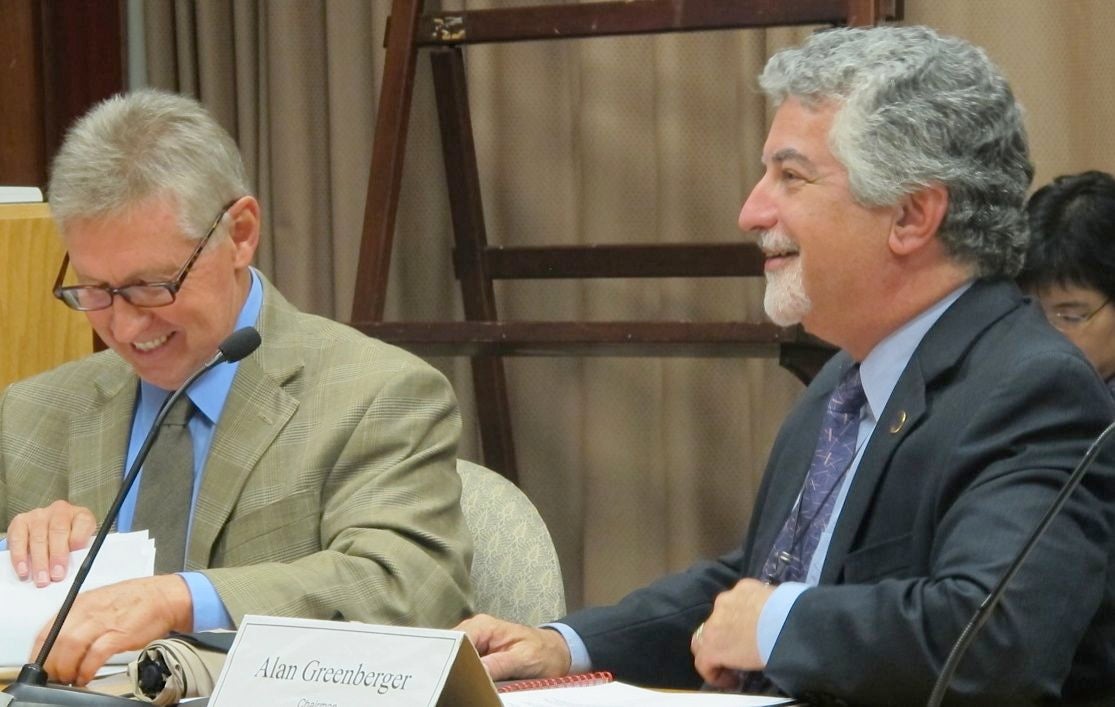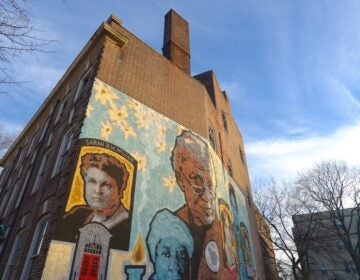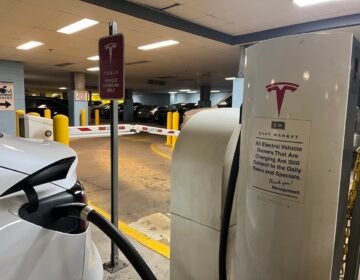Deputy Mayor: Casinos haven’t generated neighborhood development

Casinos have not stimulated economic development in their neighborhoods, said Philadelphia Deputy Mayor for Economic Development and Director of Commerce Alan Greenberger.
“Casinos are economic drivers in the sense that they provide a lot of jobs and tax revenue to the governmental entities that sponsor them,” he said after a Wednesday public input session on the six proposals for the city’s second casino license. “I haven’t seen them generate local economic development. Yet. But one of the ones in this room could. Some might, some might not.”
The possibility of spurring economic growth in the surrounding community is one of the factors that Greenberger and his staff will use as they try to gauge which of the proposals is the best fit for the city, he said. And he will also work to move the six hopeful developers toward steps believed to help each of them achieve more of that.
Greenberger noted that stand-alone casinos tend to be “very internalized” but some of the proposals for Philadelphia have more than a casino in them. “One with other stuff could be economically more interesting and have a better shot at creating other economic development than a stand-alone does.”
PlanPhilly had this conversation with Greenberger after talking to several public session attendees about their opinions on casinos. One attendee, CasinoFree Philly’s Dan Hajdo, said he had just spoken to the deputy mayor. Hajdo said that not only did Greenberger tell him he agreed with Hajdo that casinos don’t have an “economic multiplier effect,” but that Greenberger also said if it were up to him, there would not be casinos in Pennsylvania.
“He said if he had the vote to do over on whether we should legalize casinos or not he would vote no,” Hajdo said.
Neither Greenberger nor any other city official had a say in legalizing casinos – the state legislature did that.
When asked about his conversation with Hajdo, Greenberger said his personal feelings are irrelevant and moot, but he does not oppose casinos. “I have no problem with them, morally,” he said, noting that SugarHouse and other regional casinos have opened with no problems created.
Greenberger said his focus is on working to improve all six proposals and eventually endorsing to the Pennsylvania Gaming Control Board – which will award the license – the the one or ones that would be best for Philadelphia.
The six applicants for the second Philadelphia casino license, which is likely to be awarded this fall:
The Provence, Tower Entertainment, LLC, 400 North Broad Street.
Market8, Market East Associates, 8th and Market streets.
Wynn Philadelphia, Wynn PA, Inc., 2001 Beach Street and 2001 through 2005 Richmond Street.
Casino Revolution, PHL Local Gaming, LLC, 3333 South Front Street.
Hollywood Casino Philadlephia, PA Gaming Ventures, 700 Packer Avenue.
Live! Hotel and Casino, Stadium Casino LLC, 900 Packer Avenue.
In addition to an on-going economic analysis of the proposals, the city is examining traffic and other development-related issues and will continue to seek public input, both through sessions like the ones held Tuesday, Wednesday and Thursday nights and through an on-line survey that can be taken here. The public input will be compiled and included in the city’s testimony to the PGCB at local hearings set for April and May.
Residents can testify directly to the PGCB as well. To speak at the April 11 and April 12 hearings at the convention center, registration is required by noon on April 9. To speak at the May 8 hearing at Lincoln Financial Field, registration is required by noon on May 6. Register on line or get more information at the PGCB website, here.
Written comments may be mailed to: PA Gaming Control Board, Attention: Board Secretary, P.O. Box 69060, Harrisburg, PA 17106 or faxed to 717-346-8350. Anthony Mannino, chief of staff for Sen. Larry Farnese, said the public record will remain open after the meetings. The proposals are still in a state of flux. When asked if Farnese, in whose district all six proposed casinos are located, would ask the PGCB to host a second round of public input sessions after things gel a bit more, Mannino said that depends. He noted the time gap between the April sessions and the one in May, and said things may be more concrete by May.
At last night’s session at the Center for Architecture, Hajdo said what his organization has been saying since the city’s first casino license winners were chosen: “This is a public health issue. Gambling addiction is the way casinos profit.”
When asked if there was a proposal or proposals that he preferred over the others, Hajdo said he didn’t get the kind of information that he needs to make such a decision: What is the local hiring rate? What percentage of the payroll will stay local? Will most of the revenue be generated from customers who live in Philadelphia, or elsewhere?
Kamil Dmowski of Fitler Square also thinks the city would be better off without another casino, but he already does have a preference for where the license should go. “The three that are in the stadium area are the best of the worst,” he said. “I’m fundamentally opposed to having more casinos in Philadelphia, but isolating them is probably the best that can be done.”
“In an age when we are banning smoking in public spaces, I find it supremely ironic that we are encouraging gambling,” he said.
Most participants did not seem to take that stance.
Dodie “D” Layton and Susan Yeck, both from Francisville, are big supporters of The Provence, which they said would be a huge asset to their neighborhood. “We’re kind of excited to see things happen on Broad Street,” Layton said. “We have the Divine Lorraine getting ready to be developed, and I think this is just an added asset to Broad Street, bringing people, kind of showing off the North Side of Center City.”
The Provence would “bring a lot of night life … where people can go to fine dining and have entertainment afterward,” said Yeck.
Newbold residents Jillian Waldman and Michael Noda said the three South Philadelphia proposals are their least favorite for the same reason Dmowski favors them.
“You can have the perspective that casinos are bad, but you have to have them, so you try to shove them in a corner and insulate them from the people,” Waldman said. “But the other, bolder proposals are saying casinos could actually be positive, not just a thing we grudgingly accept. It could add to the shopping life, it could add to the pedestrian life.”
The proposals Waldman likes best are Market 8 and The Provence. She said of Market 8, “I like the location and I like the footprint. I’m not sure the pedestrian access is good.” She said from what she can tell, the Market 8 proposal doesn’t have obvious entry points for pedestrians. She said it is much like the convention center in that way where, “it wouldn’t be obvious that you would want to go into it.”
The Provence “has a lot more potential for pedestrians, with gates you go in,” she said. “The problem there is most of their shopping is on the roof. I think both have a lot of potential, but would need some re-design.”
Noda is the man behind the blog Sic Transit Philadelphia. He is also a professional gambler. Noda said both as a poker player and a transit advocate, the Market 8 proposal is his favorite, due to the way it fits in the streetscape of its neighborhood and the network of nearby transit.
He believes the transit nodes around Market 8 would encourage casual gamblers “who come in and gamble with $20 or $100, have a nice meal, a good time, some drinks, and don’t come back for a month or two months.”
It’s when a casino relies on the same repeat customers over and over that there are problems with gambling addiction, he said. And that’s not good for his game, either.
“If I’m going to show up at a poker table and sit down with the same nine guys over and over again, the only person who makes money on that transaction is the house,” he said. “The rest of us are just going to sit around and push chips around the table until, very slowly and eventually, the worst player at the table hits bust.”
WHYY is your source for fact-based, in-depth journalism and information. As a nonprofit organization, we rely on financial support from readers like you. Please give today.






